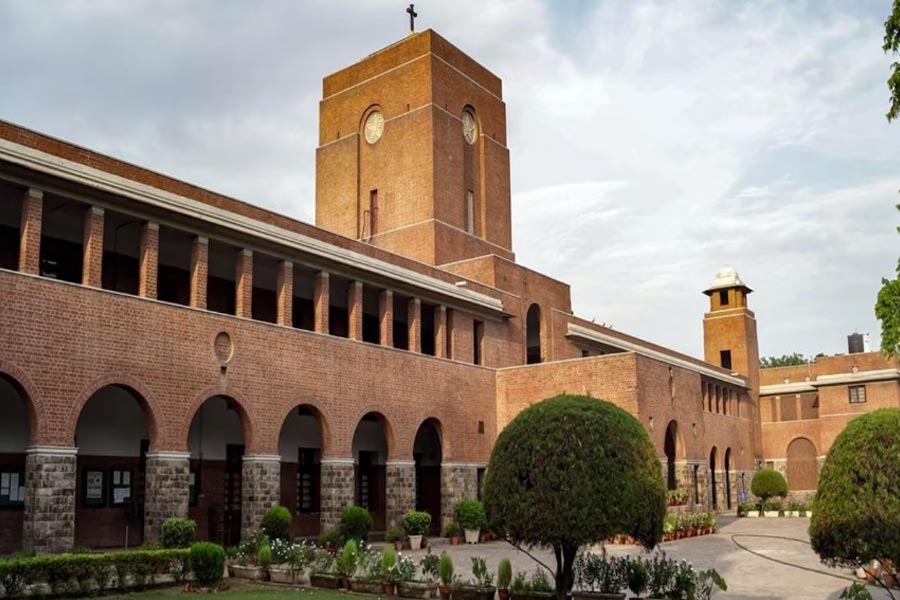The Delhi High Court on Monday permitted Delhi University’s St Stephen’s College to conduct interviews for the minority students seeking admission to the post-graduate courses, and to allocate 15 per cent marks to interview with 85 per cent being allocated for the students’ CUET score.
The high court, however, said non-minority students would not be subjected to any interview for admission to PG courses in the college and their admission would solely be on the basis of their Common University Entrance Test (CUET) score, which is conducted by the National Testing Agency (NTA) for admission in the central universities.
Justice C Hari Shankar said the Delhi University (DU) would ensure that allocation or allotment of post-graduate (PG) seats in the college is not disproportionate.
"Among other considerations, the DU may consider, in deciding on the number of PG seats to be allotted, the infrastructure available with the concerned college and the number of undergraduate (UG) students in that course of study admitted in the college. These, however, are merely suggestions and the DU is at liberty to adopt any objective criterion as it deems fit in that regard," the high court said.
The court also took note of the fact that there is no guideline governing the allocation of PG seats in the colleges and said "this is not an acceptable situation".
"Grant of uncanalised and absolute discretion is an invitation to arbitrariness. While the court cannot, in exercise of the jurisdiction vest in it by Article 226 of the Constitution, direct framing of guidelines or creation of a policy, it is deemed appropriate that the DU be directed to consider doing so, in order to avoid any scope for arbitrariness," the court said.
It said in order to avoid further heartburn on this score, the university is directed to consider framing of an appropriate policy or guidelines to govern allocation or allotment of seats in the PG courses amongst various colleges.
The grievance of the college was that while allotting seats for admission to the PG courses in the colleges affiliated to it, DU was allotting a disproportionately small number of seats to St Stephen’s college.
The petitioner college alleged that there were no objective guidelines governing the allotment of PG seats amongst the colleges and the varsity enjoyed an absolute control over the decision on the number of PG seats to be allocated to any particular college affiliated to it.
In its response to the petition, the DU took serious exception to the practice of the petitioner college in subjecting the students, who had already been selected and shortlisted by the DU for admission to postgraduate courses, to an additional round of interview and on that basis, refusing to admit some of them.
It said while all other colleges were honouring the selection process adopted by the university before allocating students to the PG courses, it was the petitioner college alone which was adopting a different course and subjecting the selected students to an additional round of interview.
Later, the university’s counsel submitted that as long as the petitioner college restricts holding of interviews for admission of PG students only to students belonging to the Christian minority community, DU would not have any objection and it would ensure that there is proportionate allocation of PG seats to St Stephen’s college.
Taking note of the statement, the court said it is not necessary for this court to enter in merits into the aspect of the reasonability of the method of allocation of seats in the PG courses by the DU.
Except for the headline, this story has not been edited by The Telegraph Online staff and has been published from a syndicated feed.

